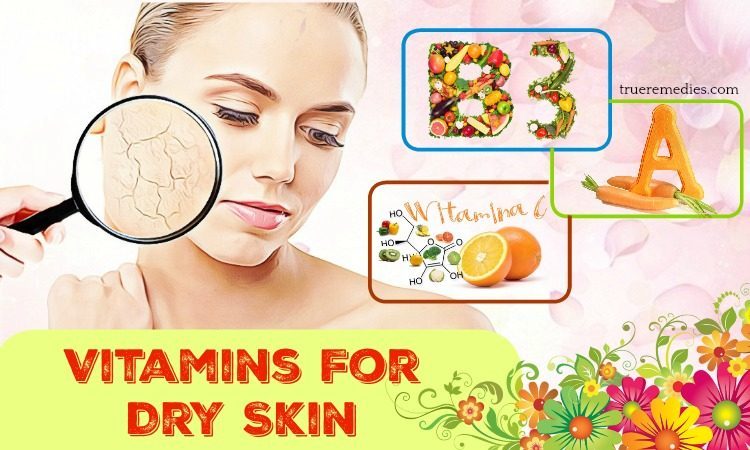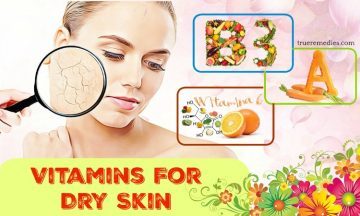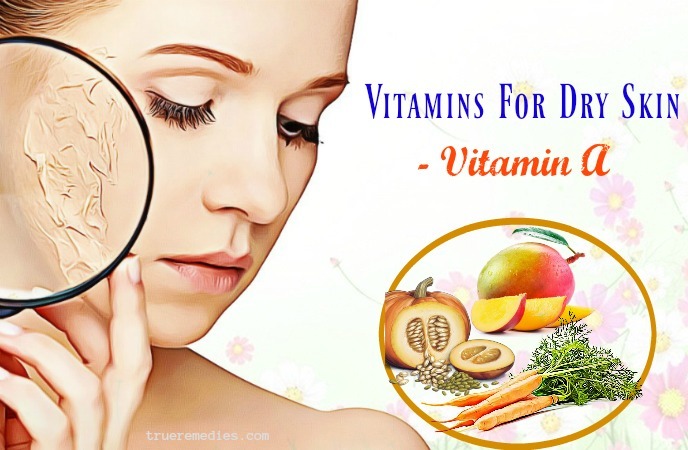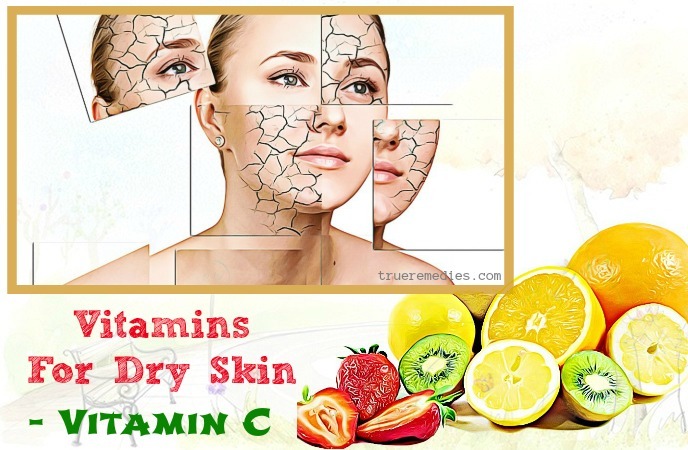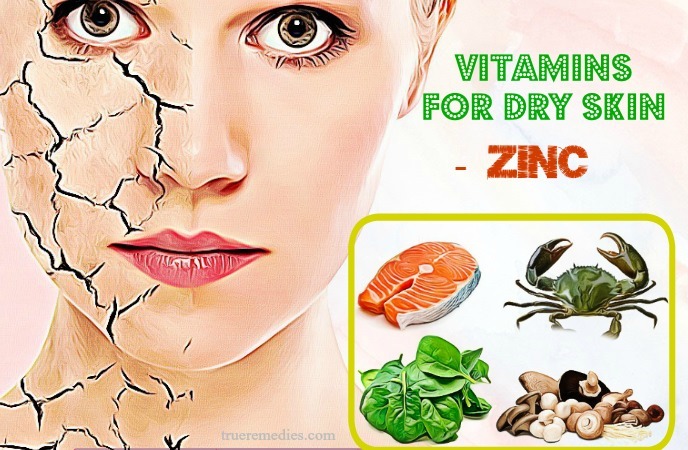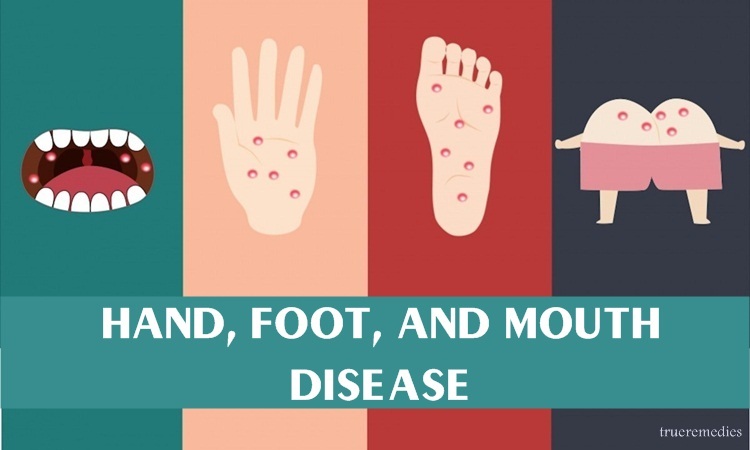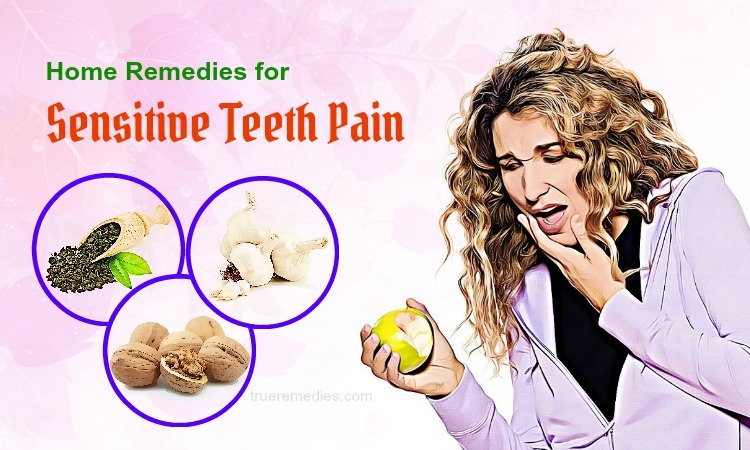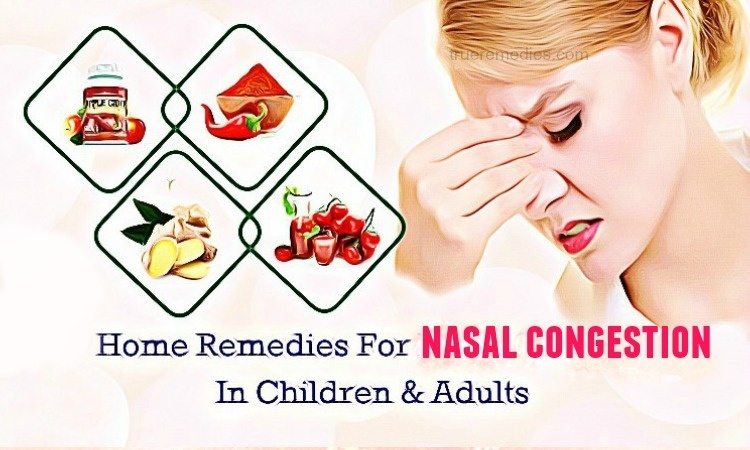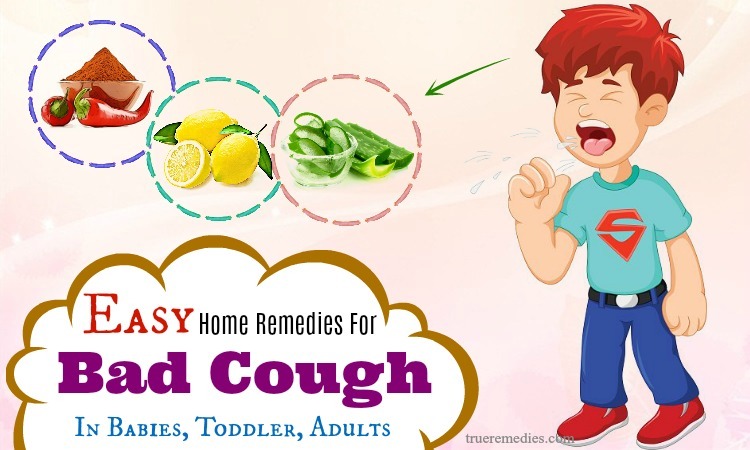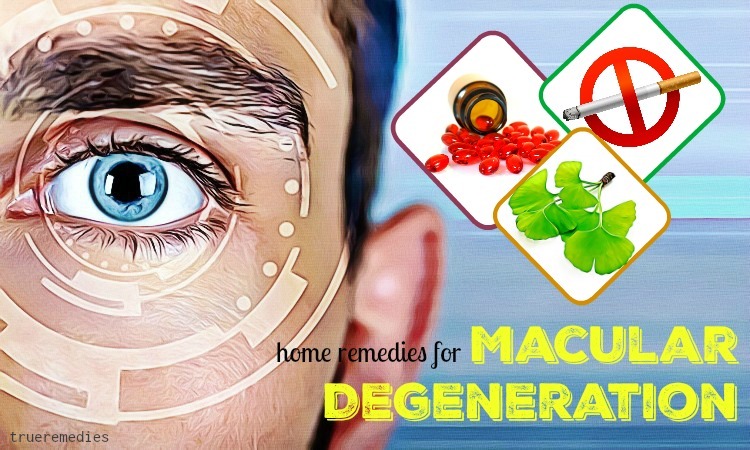Updated: 11/19/2019
Contents
Most people experience dry skin at some point in their lives, especially in the winter. Dry skin is usually caused by environmental conditions, hereditary or excessive bathing. If you are facing dry skin, do not worry because there are many methods you can take to moisturize your skin and prevent your skin from drying out again.
In this article, we introduce you to best minerals and vitamins for dry skin on face, lips and hands that can help you maintain hydrated skin naturally. These familiar vitamins and minerals could be found in common food stuffs. Surely, you will feel surprised about the effects that these vitamins for dry skin can give you. But first of all, let’s get to know some information about dry skin!
What Is Dry Skin?
Dry skin is a very common skin condition. Dry skin can appear anywhere on the body but is most common on the face, arms, hands, legs and abdomen. The main cause of this condition is the lack of water in the surface layer of the skin and the epidermis. Dry skin can be seen in both men and women. This condition often occurs in older people due to the decrease in natural oils on the skin. Not only facial skin, other skin areas, such as the arms, hands and feet can also suffer from this condition. Then, skin in these areas is very susceptible to cracking. The most prominent feature of dry skin is the peeling of the skin. This becomes an obsession for many people.
Many people suffer from dry skin but do not know about this. In addition to visiting professional skin care facilities, you can take some of the steps below to determine this yourself:
- When you wake up in the morning, wash your face thoroughly with a cleanser
- Do not use any skin care products
- Monitor skin reactions to recognize your skin condition
If you notice that your skin is rough and you feel uncomfortable, then you are experiencing dry skin condition.
If not treated early, dry skin can cause a lot of consequences. The first consequence to be mentioned is the unevenness of the skin. Dry skin makes freckles and age spots easy to form. They may even spread to other areas of the body.
TrueRemedies Partner Solutions

Need a Help from the Leading Expert Online, Available 24/7?
They’re all here and ready to answer your questions online or by phone. Keep asking questions until you get the answer you need.
Besides, you will always have to suffer the pain and cracks that this condition causes. Due to this, your skin is susceptible to bacterial infection or inflammation that easily penetrates the skin through damaged areas. Because of the dryness that negatively affects the aesthetics of the skin, many people are embarrassed when they meet others. This is certainly the worst consequence.
What Are Common Causes Of Dry Skin?
Here are common causes of this condition:
- The Air Is Too Dry And Cold
This is the most common cause of dry skin. The best way to deal with this is to wear a hat, a shawl and a glove every time you go out. In particular, you should wear socks to keep your feet warm during winter because cold air can cause the legs to become dry and cracked.
- Make Frequent Hot Water Showers
You can feel the skin drier as soon as you step foot out of the bathroom. This is because hot water has removed moisture on the skin. It is best to take a bath with warm water and dry your body with a soft cotton towel to avoid damaging the skin while keeping the skin moist.
- Use Soap
Soap can remove natural oil on the skin. So, just use soap for your legs, arms, groin, and armpits. You can also use gel bath to remain the moisture on the skin. Only if you have worked in a very dirty environment before, you need to bathe with soap. Note that washing your hands often with soap can also make your hands dry.
- Exposure To Sunshine
In fact, sunshine in the morning is good for the body. However, sunshine at noon is the cause of most skin problems. In order to prevent the effect of this factor, when going out, you should use sunscreen. In addition, you should limit exposure to the sun when trying to treat dry skin problem.
- Clothes Are Not Comfortable
Many people still stubbornly wear clothes that make them feel itchy. In fact, dry skin is especially sensitive to stimulants. Therefore, constantly rubbing the skin with uncomfortable clothing can make the skin dry and itchy. Choose the clothes that make you feel comfortable the first time you wear them. Cotton material is the best. In addition, the clothes must not be too tight.
- The Use Of Some Certain Medicines
When you use high blood pressure medications, diuretics, allergy medications or acne medications, your skin may become dry. If you notice your skin is dry when you use these medications, you should talk to your doctor about changing your medicine.
- Some Health Problems
Normally, dry skin is caused by external factors. But sometimes, it can be a sign of a certain illness in the body that includes a natural physiological change.
- Do Not Use Air Humidifier
The air humidifier is an important part of taking care of dry skin. Based on weather conditions and indoor and outdoor temperatures, you can regulate the humidity of the machine. You should not change the temperature suddenly as this will cause the skin to dry and rough.
What Are Common Symptoms Of Dry Skin?
Some common symptoms of dry skin include:
- Small pores
- Very rough skin
- Skin is cracked and peeling
- There are many acne, even blackheads
- Pale skin
- You may notice the appearance and spread of freckles and age spots
- Skin is not smooth
- Ability to absorb the nutrients of the skin is very poor
- Skin is prone to irritation, especially with skin care products and cosmetics
You may experience other symptoms not mentioned. If you have any questions about the signs of the disease, please consult your doctor.
Who Is At High Risk Of Dry Skin?
In fact, anyone can suffer from this condition, including children. However, women are more likely to experience this condition than men. In addition, people who work outdoors in polluted environments are also prone to dry skin.You can control this problem by minimizing risk factors. Please see your doctor for more information.
When To See A Doctor?
Dry skin is not life-threatening, so you can treat it at home with very simple methods. However, if this condition is caused by some illnesses, you should see a doctor for advice on medicines to help with this condition. Besides, if you have any questions, please consult your doctor. Each person's condition is different, so please consult your doctor to select the most suitable option.
The above is the basic information about dry skin. As you know, this condition needs to be treated promptly to avoid serious consequences. One of the simplest ways to help you cure this condition is to supplement your body with some vitamins which help boost the skin's moisture. Below, we introduce to you 8 best minerals and vitamins for dry skin. Take a look at TrueRemedies.com
List Of 8 Best Minerals & Vitamins For Dry Skin On Face, Lips And Hands
1. Vitamin A
This is the first vitamin in this list of vitamins for dry skin on face, lips, and hands. Vitamin A, also known as Retinoids, is found in skin products such as lotions, anti-aging creams and prescription skin products. It is a vitamin that stimulates the collagen production of the skin, reduces wrinkles, restores elasticity of the skin, slows the aging process, fades brown spots and keeps the skin naturally smooth. At the same time, vitamin A nourishes the skin from deep inside, gradually helps you overcome the condition of dry skin. Dr. Doris Day, assistant professor at the New York University Center for Medicine, said: “More than 700 studies have shown that vitamin A makes skin healthier.” That is great!
Proved to contain many antioxidants that help slow down the aging process, if used in the long-term, vitamin A will “change” your skin dramatically. This vitamin also helps restore dry skin due to exposure to sunlight or due to dermatitis. You can add this vitamin to your body through functional foods. To get the best results, you should drink these functional foods in the evening to reduce the exposure of your skin to the sun. Although vitamin A is extremely good, it also causes unpleasant side effects. Therefore, before using this vitamin, you should carefully read the instructions or consult your doctor.
In addition, you can also add vitamin A to the body through some foods, such as:
- Carrot
Carrots are the top food in the list of foods rich in vitamin A. A carrot will provide 7,835 IU of vitamin A and 100 grams of carrots will provide 17,033 IU of vitamin that the body needs. Carrots also contain large amounts of vitamins B, C, K, fiber and magnesium.
- Pumpkin
Pumpkin contains a lot of beta-carotene which is converted into vitamin A in the body. Half a cup of canned pumpkin provides 953 milligrams of vitamin A and only 42 calories. 100 grams of cooked pumpkin provides 11,155 UI of vitamin A that your body needs daily.
- Beef
Lean beef is a great source of vitamin A. 100 grams of beef can help you get 90% of the vitamin A your body needs every day. Beef is also rich in zinc, a mineral that helps the body absorb antioxidants and fight off certain diseases. Make sure you pick the lean meat from grocery to reduce the total amount of saturated fat in your diet. Not only meat, cow's liver also provides more than 30% of the vitamin A that your body needs daily.
- Mango
Mango is a juicy fruit that is available for both meals and desserts. This tropical fruit is an important nutrient “reservoir” and it can be an important supplement to a healthy and balanced diet. A medium sized mango provides 3636 IU of vitamin A, equivalent to 73% the vitamin A that your body needs daily.
- Papaya
Papaya is a tropical fruit that contains a moderate amount of vitamin A. Papaya contains high levels of vitamins, minerals, enzymes and antioxidants. A small papaya provides 30% of the vitamin A that your body needs daily. This delicious fruit will be a great addition to your fruit salad and smoothies.
- Tomato
Tomatoes contain a high content of minerals and vitamins for dry skin, but a low level of calories. A big tomato can provide you with 20% of vitamin A that your body needs daily. Tomatoes are also a great source of vitamin C and lycopene.
- Seafood
Seafood such as tuna, oysters, salmon, sturgeon and mackerel contains large amounts of vitamin A. 100 grams of tuna can help you achieve 50% of vitamin A that your body needs daily. The sturgeon and mackerel provide 15% of the recommended vitamin A value. Oyster is “a nutrient machine”. An ounce of oysters can provide 8% of the vitamin A your body needs.
2. Vitamin B3
Among vitamins for dry skin in winter, vitamin B3 is one of the most effective. Vitamin B3 is also a very good vitamin for dry skin. On skin care products, vitamin B3 is called niacinamide. The primary benefit of vitamin B3 is that it helps restore skin cells, repair damaged DNA, and reduce the effects of ultraviolet radiation on the skin. Vitamin B3 has been shown to enhance the production of ceramide and fatty acids, two important compounds that play a role in protecting the skin. With this excellent protective film, the skin can maintain the required moisture. Therefore, vitamin B3 is a very good substance, especially for dry and sensitive skin. Vitamin B3 also helps prevent sebum secretion, thus limiting the formation of skin spots.
According to Dermatologist Jennifer Herrmann of Beverly Hills, vitamin B3 is an amide that the body cannot produce by itself, so you can add it to your body through certain foods and functional foods. Note that before using functional products, you should consult your doctor about the most effective use.
Here are some foods rich in vitamin B3 – one of the best vitamins for dry skin – that you should add to your daily diet:
- Green Bean
1 cup of green beans provides 3 mg of vitamin B3, equivalent to 15% the vitamin B3 that your body needs daily.
- Avocado
Avocados contain a variety of vitamins for dry skin, including vitamin B3. An avocado provides 3.5 mg of essential vitamin B3, equivalent to 17% the vitamin B3 that your body needs daily.
- Sunflower Seeds
Just one cup of sunflower seeds provides 3.8 mg of vitamin B3, equivalent to 19% the vitamin B3 that your body needs daily.
- Mushroom
A single cup of mushroom provides 7.6 mg of vitamin B3, equivalent to 34% the vitamin B3 that your body needs daily.
- Beef
3 ounces of beef provides 7.6 mg of vitamin B3, equivalent to 34% the vitamin B3 that your body needs daily.
- Chicken
3 ounces of chicken provides 8.9 mg of vitamin B3, equivalent to 44% the vitamin B3 that your body needs daily.
- Tuna
3 ounces of tuna provides 11.3 mg of essential vitamin B3, equivalent to 56% the vitamin B3 that your body needs daily.
3. Vitamin C
This is another vitamin in this list of best minerals and vitamins for dry skin in winter. We can easily find vitamin C or ascorbic acid in most skin care products. This vitamin is especially useful for people with dry skin. Thanks to the effect of this vitamin, your skin will always be moisturized from deep inside.
Our skin and body are being attacked by free radicals from pollution, harmful rays from sunlight, dust and smoke. Free radicals are responsible for the loss of skin elastin and collagen, which in turn results in wrinkles and other aging symptoms. Vitamin C is more effective than any other compound in preventing the sun's harmful effects on the skin. In addition, vitamin C is very effective in removing free radicals that cause skin sagging. Thanks to the effect of vitamin C, the skin enhances collagen production significantly. That is why after a short time using vitamin C for your skin, you will notice that your skin is “renewed” [1] [2].
On the other hand, vitamin C also helps prevent as well as treat UV-induced photodamage by acting as a natural antioxidant [3]. Higher intakes of vitamin C in the dietary form have been correlated with a reduced level of dry skin. Ascorbic acid in vitamin C also has positive effects on the trans-epidermal water loss [4]. Vitamin C is also beneficial in wound healing which improve the appropriate formation of strong scar tissues [5]
Just like vitamin A and vitamin B3, you can take vitamin C supplements for the body through some foods and functional foods. Of course, the consumption of many foods rich in vitamin C is still the first choice of many people. Here are some suggestions for you:
- Guava
Guava is a fruit rich in vitamin C, one of best vitamins for dry skin. An average guava can provide 125.57 mg of vitamin C, equivalent to 200% of the vitamin C that your body needs every day. This fruit also contains high levels of fiber, which is beneficial for the digestive system. Besides, guava also carries a high concentration of folic acid, manganese and potassium.
- Bell Peppers
These colorful bell peppers are the most nutritious foods that you should add to your diet. Bell peppers can be used to increase the attractiveness of your favorite pizza or pasta. An average bell pepper can provide 342 mg of vitamin C, equivalent to 570% of the daily vitamin C intake. Most bell peppers contain high levels of vitamin C; however, the yellow bell pepper contains the highest vitamin C content.
- Cauliflower
A cauliflower diet can provide up to 46.5 mg of vitamin C. Cauliflower is not only a food rich in vitamin C. It can also bring you more vitamins and minerals, such as vitamin K, fiber and folate.
- Brussels Cabbage
Children often do not like Brussels cabbage. However, only one serving of Brussels cabbage can provide up to 113% of the amount of vitamin C that your body needs. Brussels cabbage is also rich in other nutrients such as vitamin K, iron, folate, potassium and phosphorus.
- Broccoli
Broccoli is a great source of nutrients, especially vitamin C. A broccoli diet can provide 81.17 milligrams of vitamin C. This vegetable also contains low calorie content. A broccoli diet contains only 30 calories.
- Kiwi
This fruit contains more vitamins than orange. Eating one kiwi per day can give you 85mg of vitamin C. Use kiwi for breakfast or making delicious desserts.
- Orange
Orange, along with other citrus fruits, is known to be a rich source of vitamin C, known as “winter fruit” as it is “a beneficial weapon” against cold flu. There are about 50mg of vitamin C in every 100g of oranges. It is known to help support the immune system, thereby reducing the risk of cancer.
- Blackcurrant
Blackcurrant is also rich in vitamin C. It contains nearly 200mg of vitamin C per 100g (about four times as much as vitamin C in oranges). Blackcurrant is also rich in antioxidants and flavonoids that help reduce inflammation, especially in urinary tract infections.
4. Vitamin E
The next one in this list of vitamins for dry skin in winter is vitamin E. Studies show that vitamin E (also known as Tocopherol) is usually found in sunscreen products because it has the ability to limit the negative effects of ultraviolet rays present in the sun and restore damaged cells from sunburn.
In addition, vitamin E is an effective antioxidant and skin moisturizer. As a result, this vitamin boosts the natural moisture of the skin, eliminate the formation of free radicals, and keep the skin firm. Not only that, vitamin E also has the ability to balance the amount of oil on the skin, so you will get rid of dry skin quickly.
You should drink functional foods which supplement vitamin E for your body daily as they are good for both your skin and your eyes. In addition, you should also add the following foods rich in vitamin E into your daily menu:
- Almond
When it comes to vitamin E – one of the best vitamins for dry skin, many people think of almond. Almond is a very rich source of natural vitamin E. 100 grams of almonds provide you with 26.2 milligrams of vitamin E. You can use almonds, almond oil and almond milk.
- Radish
Radish can supplement your body with some essential vitamins, especially vitamin E. A radish provides about 17% of vitamin E that your body needs daily.
- Cabbage
Like radish, cabbage is rich in nutrients. It is also one of the leading foods that can provide vitamin E, folate and vitamins A, C, and K for our body. You should use cabbage to make salads to receive the best results.
- Spinach
Maybe spinach is not one of your favorite foods, but it's one of the very healthy vegetables. Not only rich in vitamin E, it also contains many oxidants and essential nutrients such as calcium and folate. It can be used as a vegetable for meals.
- Vegetable Oil
Vitamin E is also abundant in vegetable oils. In all vegetable oils, wheat germ oil has the highest vitamin E content. Just one tablespoon of wheat germ oil is able to supply 100% of your daily vitamin E needs. Sunflower oil is also a great source of vitamin E, one tablespoon of sunflower oil can provide over 5 mg of vitamin E. Besides, coconut oil and olive oil are also rich in vitamin E.
- Avocado
Avocado is considered one of the foods that provide a large amount of healthy Vitamin E. Just consuming half of the avocado, you are able to provide to your body more than 2 milligrams of natural Vitamin E. You can easily add avocados to salads, breads or smoothies.
- Broccoli
Broccoli is known as the best detoxifying food and is also a good source of vitamin E. Just one cup of broccoli will provide 4% of your daily vitamin E intake.
5. Vitamin D
The last one in this list of vitamins for dry skin on face, lips and hands is vitamin D. Many people think that vitamin D is only good for bone, but the following information will surprise you about the effect of this vitamin. Vitamin D is also one of the vitamins that can moisturize the skin very well. As you know, one of the causes of skin dryness is the effect of sunlight. Fortunately, vitamin D can prevent this.
Studies have shown that people with dry skin often have lower levels of vitamin D in the body than people with normal skin and oily skin. Even if the amount of vitamin D in your body is too low, you may have some skin disease like eczema. Vitamin D is capable of enhancing the regeneration and development of skin cells. Deficiency of vitamin D can also lead to premature aging, leading to the formation of wrinkles.
You can take vitamin D supplements through functional foods. But it is best to add the following vitamin D rich foods to your body:
- Fish
Fish are rich in vitamin D. Of all fish, Atlantic herring contains the most vitamin D with 1628 IU in 100 g. Besides, salmon, mackerel, sardines and tuna are also rich in this vitamin.
- Cereals
Used as a predominantly American breakfast, most commercial cereals enhance the vitamins and nutrients necessary for the body. 100g of cereal provides up to 342 IU of vitamin D for the body. You should carefully check the food labels when you buy them, choose grain products with little or no refined sugar and partially hydrogenated oils.
- Mussel
The mussel contains a lot of vitamin D. 100g of mussel contains up to 320IU of vitamin D. In addition, mussel is an excellent source of vitamin B12, zinc, iron, manganese, selenium and copper. However, mussel is high in cholesterol, so people who are at risk for heart disease or stroke should eat the oysters at a moderate level.
- Caviar (Black And Red)
Caviar is a popular ingredient in sushi. Caviar provides 232IU of vitamin D in 100 g or 37.1 IU in a teaspoon.
- Dairy Products
Dairy products are rich in calcium and vitamin D. Milk can provide up to 52 IU of vitamin D per 100 g or 127 IU per cup. Cheese and butter provide about 7 IU in a tablespoon.
- Eggs
Eggs are rich in vitamin D. Eggs contain 37 IU of vitamin D in 100 g, 17 IU in a large fried egg. In addition, eggs are a good source of vitamin B12 and protein.
6. Zinc
Among best vitamins for dry skin this winter, zinc may be appreciated the most. It is an essential mineral and imperative part of a lot of physiological functions. It plays an important role in the structure in certain enzymes and proteins, and the gene expression regulation.
Zinc is crucial in protein synthesis, DNA synthesis, immune function, wound healing and cell division [6]. This mineral has anti-inflammatory properties, supports the proper structure of cell membranes and proteins and protect against UV radiation.
A few studies show that dietary zinc might decrease acne as effectively as tetracyclines and other antibiotics. The reason might be because it interacts with vitamin A by playing as a component of retinol-binding protein. This protein is essential for the transportation of vitamin A in the human blood [7].
Zinc supplement is linked with the increase of vitamin A in blood, which indicates a relation between these two nutrients. It also explains why zinc positively affects the acne.
Animals are considered the best dietary sources of zinc. They are not bound to phytates as in the plants. Some organs like liver and kidney, seafood like scallops and oysters, and red meat like lamb and beef, along with other shellfish are among the highest sources of zinc.
The plant foods like pumpkin seeds could also be rich in zinc, yet less bioavailable. The reason is because zinc in plant sources is bound to phylates unless properly prepared by soaking.
7. Biotin
Getting adequate of biotin in your daily diet is an important part of maintain hydrated skin. Whilst biotin deficiency is relatively rare in the U.S, it may result in cracked mouth corners, dry and scaly skin, and seborrheic dermatitis in infants, according to a report in the University of Maryland Medical Center [8].
You should consume biotin-rich foods or take a high quality biotin supplement with the supervision of your doctor to prevent / correct possible biotin deficiency.
It is shown that the adequate intake of biotin is 30 mcg every day for males and females.
Some foods rich in biotin are:
- Cooked eggs: Biotin is present in cooked eggs, particularly egg yolks. They should be cooked before being consumed, though the heat preparation will reduce the biotin amount you can absorb. Due to biotin serves a function in the growth of an embryo, it explains why egg yolks are among the richest sources of biotin.
- Nuts: Despite the concentration of biotin varies by the kind of nuts, they are still one of the best dietary sources of natural biotin. 100grams of pecans has approximately 28 mcg of biotin. The same quantity of walnuts or peanuts consists of about 37 mcg. Nuts are considered a wonderful source of omega fatty acids, energy, and many other heart-healthy nutrients.
- Liver: Just 3 ounces of cooked liver from beefs have 30.8 mcg of biotin.
- Salmon: It is estimated that 3 ounces of salmon consist of 5 mcg of biotin. It is also rich in omega-3 fatty acids which do wonder for your health.
- Cauliflower: each serving of raw cauliflower consists of 17 mcg of biotin. As biotin is water-soluble, consume the raw form of cauliflower can help you get maximum benefit of this mineral.
- Bananas: In general, the majority of fruits are not a good payload of biotin, but bananas are an incredible exception. Just one average-sized peeled banana (approximately 100 g) has 1.18 mcg of biotin. Bananas are also a rich source of potassium, dietary fiber, manganese, magnesium, iron, phosphorus, calcium, and vitamins A, B6, and C.
- Sweet Potatoes: About ½ cup of cooked sweet potato has 2.4 mcg of biotin, not to mention other powerful antioxidants that promote your skin’s health.
- Spinach: 1/ 2 cup of boiled spinach have 0.5 mcg of biotin. This food is also low in cholesterol and fat while being in rich in iron. The antioxidants in this vegetable can help with cancer and inflammatory diseases such as diabetes. Similar vegetable containing a high content of biotin is broccoli.
- Cheddar Cheese: 1 ounce of mild cheddar cheese has 0.4 mcg of biotin. It is also rich in protein, phosphorus, calcium, which are beneficial for bone development, muscle function, kidney function as well as DNA production.
8. Vitamin B12
If you get too much or too little vitamin B12 in your current diet, it may also result in changes in your skin, in accordance with a 2015 study published in the American Journal of Clinical Dermatology.
Deficiency of vitamin B12 possibly leads to skin issues like scaly, dry skin patches (atopic dermatitis) and acne.
Consuming vitamin B12-rich foods will help prevent this deficiency. Some people do not absorb vitamin B12 properly, so you should check with your doctor whether or not high doses of vitamin B12 supplements are essential. The recommended daily amount of B12 is 2.4 mcg everyday for adults.
There, you have discover top best vitamins for dry skin. Hopefully they can improve your condition. If you have any contributing ideas about our article of “List Of 8 Best Minerals And Vitamins For Dry Skin On Face, Lips And Hands” introduced in Skin Care Category, do not hesitate to drop your words below this post. We will answer as soon as we could.

